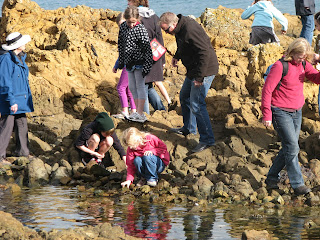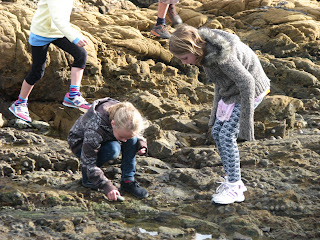Room 7 have been spending some time each night for homework, inventing a game that teachers others a new skill or knew knowledge.
This week, students have been bringing their games to school and explaining to the class what their game is, and what it will teach them. Then, they have been choosing some friends to play the game and test out it's effectiveness!
Here are some photos taken during the week...
Thursday, June 28, 2012
Thursday, June 21, 2012
Matariki
Today is the start of Matariki.
Matariki is the Maori New Year. In New Zealand, it is becoming more and more popular to celebrate Matariki. There is talk that it may soon become a public holiday.
In Room 7 we have learned that Maori New Year begins when the Matariki stars (Pleiades) first appear over the horizon each year. This was a sign to start the annual planting of the crops that would grow through spring and summer.
Matariki was celebrated in pre-pakeha times by feasts/Haangi, celebration and reflection on the year that has been. The children celebrated Matariki by playing games.
On Tuesday, Mr Chadwick at Kapahaka, taught us how to play "Kite"- "Too see".
To play "Kite" two players each hold a Ki Paua in one
of their hands. They stand some 5
or so metres apart in a defined area.
They then close their eyes or are blindfolded. Each player must rattle their Ki Paua vigorously with each
step. They can remain stationary
but must still rattle their Ki Paua vigorously every 5 seconds or so. The object of the game is to work your
way into the vicinity of your opponent so that you can grab or tag them before
they get you!
Friday, June 15, 2012
Whale Migration Mystery
This
week we have been learning about Whale migration. We've found out that
Humpback Whales spend much of the year in the Southern Ocean around
Antarctica, feeding on krill and other zooplanktons. Then, they migrate
up past New Zealand to the warm tropical waters of the equator to give
birth to baby whales. They stay in the warm waters until the baby whale
(called a 'calf') is fat enough with BLUBBER (word of the week!) to
survive the cold waters, before migrating back to Antarctic waters.
Mr Dobson was wondering though, if Antarctic waters are so cold....
...why doesn't the Antarctic Ocean just freeze?
To find out why, Room SEven conducted an experiment using ice.
First,
we measured the temperature of ordinary, fresh water ice. We found that
it was close to, or exactly, 0 degrees celcius. This is the temperature
that fresh water freezes.
We then added water and salt to the ice to make a salty water solution and continued to take temperature measurements.
The temperature DROPPED even more! Some groups reported temperatures of minus 10, 12 and even -13 degrees!!!
We concluded that, although fresh water freezes at 0 degrees celcuis, salt water freezes at a MUCH lower temperature.
So that's why the ocean around Antarctica isn't frozen solid!
Friday, June 1, 2012
Island Bay Marine Education Centre visit
What do mammals need to survive?
We have been investigating what all mammals need to survive. We learned that mammals need
- food
- air (oxygen)
- water
- a heat source
And all mammals convert the above into energy to fuel their bodies. After that fuel is used up, the mammal produces a waste product.
To prove that this was true, the children in Room 7 ran a science 'experiment'. Rather than experimenting on a live mammal, we used yeast, a living organism, instead.
We put Yeast in a small water bottle. We feed the yeast food (sugar), we gave the yeast air and water, and gave the yeast a heat source (the radiator). We then put a balloon over the neck of the water bottle.
This is what we saw happen:
What was filling the balloons?
We concluded it was the waste product from the yeast, as it converted the food, water, air and heat into energy. The waste product was carbon dioxide, and it smelled like bread!
Subscribe to:
Comments (Atom)























